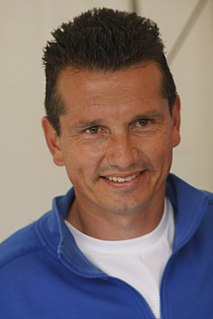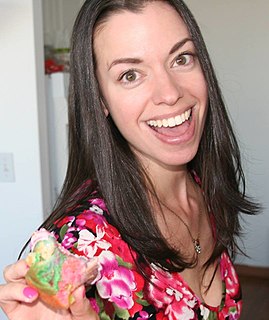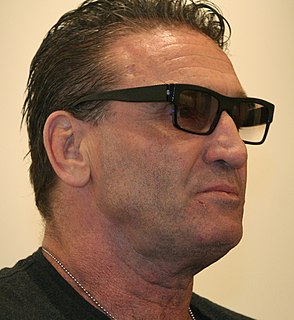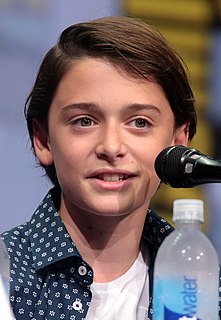A Quote by Kate Grenville
I've always had a problem with conventional punctuation of dialogue because it does seem to me to set it off too much from the narrative. I mean, in life, things don't stop while somebody says something, and then stuff starts up again; it's all happening at once.
Related Quotes
People tend to set themselves up in patterns; something happens, it hurts them, then something similar happens, and - it's happened again! It seems much bigger then, and they get worried and go through life looking for that thing, and because they're so concerned and looking for it, when anything that happens resembles that thing, they're sure it's happening again. So sometimes people think things are repeating even when they're not.
I've had enormous luck and enormous pleasure in working in such forms as movies and plays that I loved when I was a kid and I just - because I could always write dialogue, because I always had a sense of how people spoke. And because I had a strong narrative sense; growing up and loving stories, loving novels, I just seem to know how to tell a story and I read a lot, I went to a lot of movies, I went to a lot of plays, and it rubbed off on me. And that's all. It just rubbed off on me.
Do you want to be with Dave for the rest of your life?” Then he rips off a piece of paper and picks up the smallest charcoal stick from my set. He writes something. He passes it over to me. It says: Time will tell. “And while you’re waiting,” he says, “don’t settle for anything less than what you really want.
Once I start work on a project, I don’t stop and I don’t slow down unless I absolutely have to. If I don’t write every day, the characters begin to stale off in my mind – they begin to seem like characters instead of real people. The tale’s narrative cutting edge starts to rust and I begin to lose my hold on the story’s plot and pace. Worst of all, the excitement of spinning something new begins to fade. The work starts to feel like work, and for most writers that is the smooch of death.
Some people's lives seem to flow in a narrative; mine had many stops and starts. That's what trauma does. It interrupts the plot. You can't process it because it doesn't fit with what came before or what comes afterward. A friend of mine, a soldier, put it this way. In most of our lives, most of the time, you have a sense of what is to come. There is a steady narrative, a feeling of "lights, camera, action" when big events are imminent. But trauma isn't like that. It just happens, and then life goes on. No one prepares you for it.
I struggle with my training sometimes. The thing I look at is if you keep getting up and moving forward, you'll be successful. That's the way I've lived my life. I'm not going to stop doing something because somebody says it's time. I'm going to stop it when my body says it's over or the fans say, 'we're done watching you.'
Look at all the things that can go wrong for men. There’s the nothing-happening-at-all problem, the too-much-happening-too-soon problem, the dismal-droop-after-a-promising-beginning problem; there’s the size-doesn’t-matter-except-in-my-case problem, the failing-to-deliver-the-goods problem…and what do women have to worry about? A handful of cellulite? Join the club. A spot of I-wonder-how-I-rank? Ditto.
I don't want to be like the actor who rehearses everything in the bathroom, then comes to the set and carries on completely uninterrupted while the other actors tiptoe away. I'm so dependent on reacting to the other actors on the set, and to the director. I'm very responsive. I react. And I treasure the energy that reaction gives. I feed off that and work off that. I don't like to be too prepared, no. However we define too prepared, if I feel it's getting that way, then I'll back off. My line-learning is very special. I like to learn the dialogue of the whole film before I arrive.
































